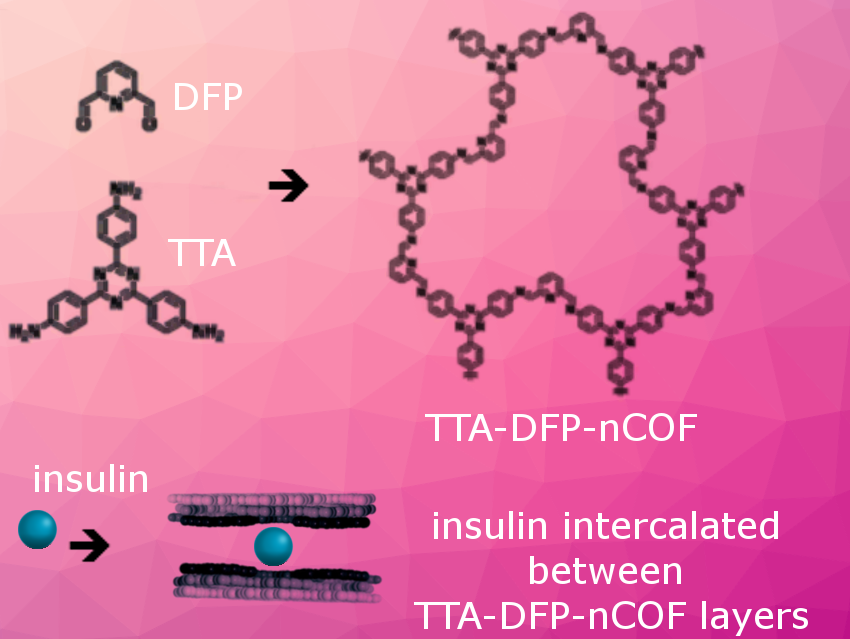Ali Trabolsi, New York University Abu Dhabi, Abu Dhabi, United Arab Emirates, and colleagues have developed imine-linked covalent organic framework (nCOF) nanoparticles for oral insulin delivery. According to the researchers, their oral insulin delivery system could replace traditional subcutaneous injections while avoiding the side effects caused by frequent injections.
Starting with 2,6-diformylpyridine (DFP) and 4,4′,4′′-(1,3,5-triazine-2,4,6-triyl)trianiline (TTA), the team developed a gastro-resistant nCOF made of layered nanosheets using a seeded growth method. The scientists loaded insulin between the nanosheet layers. The nCOF thus loaded with insulin protected insulin from digestive fluids in vitro and enabled glucose-responsive insulin release. This hyperglycemia-induced release was confirmed in vivo in diabetic rats without noticeable toxic effects.
The system is biocompatible, highly stable in the stomach, specific, rapid, and able to deliver the correct amount of insulin based on the diabetic’s blood glucose level. According to the team, the nCOF-based oral insulin delivery system can replace traditional subcutaneous injections, making insulin therapy easier. A U.S. patent application for this technology is pending.
- In vivo oral insulin delivery via covalent organic frameworks,
Farah Benyettou, Nawel Kaddour, Thirumurugan Prakasam, Gobinda Das, Sudhir Kumar Sharma, Sneha Ann Thomas, Fadia Bekhti-Sari, Jamie Whelan, Mohammed A. Alkhalifah, Mostafa Khair, Hassan Traboulsi, Renu Pasricha, Ramesh Jagannathan, Nassima Mokhtari-Soulimane, Felipe Gándara, Ali Trabolsi,
Chemical Science 2021.
https://doi.org/10.1039/D0SC05328G




